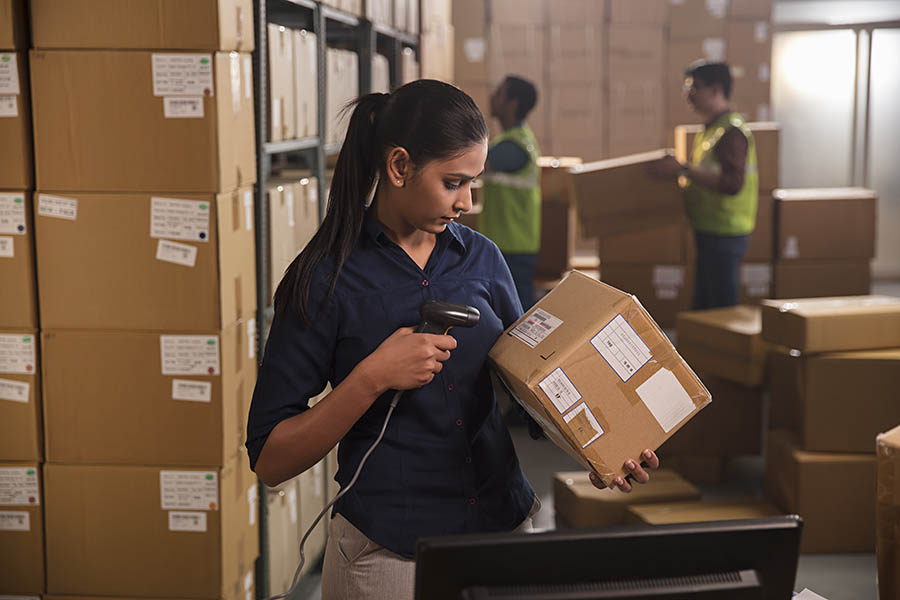Location-Based Services: A Game-Changer for Retail and E-Commerce

In today’s highly competitive market, businesses constantly seek innovative ways to connect with consumers, enhance their experiences, and drive sales. Location-based services (LBS) have emerged as a powerful tool, enabling retail and e-commerce companies. To tailor their marketing strategies and deliver personalized content to users based on their geographic location. As mobile device usage continues to soar, the potential for location-based services. The retail and e-commerce industries have become more apparent.
Companies need the right tools and strategies to leverage location-based services (LBS) powerfully. To boost your business with LBS, explore how DoiT can help integrate. These services into your operations to enhance customer outreach and drive growth.
How Location-Based Services Work
Location-based services are service technologies that deliver context-relevant, time-sensitive information and services based on the customer’s geographical location. This is done by various technologies such as GPS, Bluetooth, Wi-Fi, and cellular data. These technologies can capture location information to allow retailers to make offers. Recommendations, and promotions based on clients’ current or past locations.
For example, a customer close to a particular retail store will be contacted through a push notification. Informing them of a specific offer or a sale being conducted inside the store. In the case of e-commerce businesses, location data can be employed to display products or services in their location or shipping details accordingly. Such levels of personalization lead to an improved shopping experience and, thus, an increased conversion rate.
Benefits of Location-Based Services for Retail and E-Commerce
There are so many advantages that location-based services present to businesses within the retail and e-commerce industries. Here are a few key advantages:
1. Enhanced Customer Engagement
Among the most important advantages of LBS is the possibility of real-time communication with customers. When a customer is close to a physical store or using an internet connection to shop, businesses can send messages, push notifications, or relevant promotions based on the situation. Such involvement assists in developing a close relationship between retailers and customers and thus increases their overall revenue.
2. Improved Marketing Campaigns
Location-based services make it possible for companies to launch very specific advertising campaigns. Rather than employing a universal method, specific patterns can be followed depending on the customer’s distance to a store, their recent visits, or the weather in the area. For instance, a retailer can use geographic segmentation by sending promotional information on winter wear to customers in a region that has winter. There is also an opportunity to adapt the ads to specific geographic markets, which is extremely important for e-commerce brands.
3. More People Traffic and Sales
Location services are very effective for physical shops because they assist in attracting customers to the shops. In a way, timely and location-based promotions or alerts attract nearby shoppers and make customers visit the stores. For instance, a customer passing close to a shopping mall may receive a message through the push notification informing him or her about a one-day-only sale. LBS can also be used by e-commerce companies to make location-sensitive promotions, thus increasing online sales and conversion rates.
4. Data-Driven Insights
Location-based services offer insights into customers’ behaviors, choices, and habits. This information can help retailers and e-commerce firms understand where visitors are coming from, their frequency, and which products and promotions work best in the region. These insights can then be used for future marketing plans, stocking the right items in the right quantities, or even adjusting the store arrangement to accommodate the customers.
5. Better Customer Experience
Providing services based on customers’ preferences is essential to customer satisfaction, and location-based services enable firms to deliver customized shopping experiences. LBS is also helpful in providing relevant content to a customer, such as recommending products based on the customer’s location or sending a promotion when the customer is near a store. This does not only increase the chances of a customer getting value for his/her money but also creates more chances of getting a repeat customer.
Real-World Applications of Location-Based Services
Many of the largest global brands have already successfully implemented location-based services. For example, Starbucks utilizes LBS to inform application users about nearby stores and additional opportunities to order a drink via smartphone. In the same way, e-commerce firms such as Amazon use location information to give their clients realistic shipping times and localized offers.
Small businesses are also beginning to incorporate LBS as a way of establishing a market niche. Brick-and-mortar stores can offer customers store-specific discount coupons or vouchers; on the other hand, web stores can offer location-specific shipping offers or recommendations that are suitable for local consumers.
The Future of Location-Based Services in Retail and E-Commerce
The various location-based services will continue to be developed as technology advances. As we continue to see the evolution of artificial intelligence and machine learning, the possibilities for creating even more tailored experiences only grow. LBS will become even more integrated into retailers’ and e-commerce platforms’ portfolios as they seek to deliver highly targeted offers to their customers wherever they are and at that specific time.
In addition, integrating augmented reality with LBS can completely transform shoppers’ views of shopping and their engagement with virtual and digital screens inside the store, offering them real-time product information depending on their location.
Conclusion
LBS has emerged as one of the most promising trends for retail and e-commerce companies. It opens incredible opportunities to reach out to customers and provide them with a more engaging experience. Using LBS technology, it becomes easy for companies to interact with customers in real-time, enhance their marketing strategies, increase traffic to their business premises, and, in return, enhance sales.









